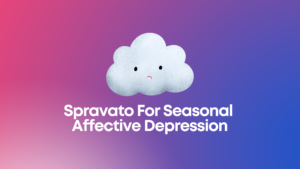Transcranial magnetic stimulation (TMS) is a technique for treating depression, OCD, and other conditions that have been approved by the U.S. Food and Drug Administration. Some people worry about risks associated with TMS treatment. This post is supposed to function as a primer to put myths about TMS risks in context. Only facts about TMS will be discussed, not opinions or theories.
TMS Is Not Shock Therapy
TMS does not involve any electrical shocks and is therefore completely different from electroconvulsive therapy (ECT), formerly known as “shock treatment” or “shock therapy.” Like TMS, ECT sends magnetic energy through the skull to stimulate nerve cells in the brain. Also like TMS, it has been used for decades as a standard treatment for severe depression.
TMS Regularly Improves Depression When Nothing Else Works
Like ECT, TMS can help people whose depression has not improved with medication or psychotherapy. It is usually reserved for people who continue to have Major Depressive Disorder (MDD). People with MDD experience persistent feelings of sadness and/or loss of interest in things they used to enjoy. For many people with MDD, these feelings are so strong that it interferes with their daily lives and normal activities.
TMS May Be an Alternative to Medication for Treating Depression
People with depression may choose TMS over drugs because it does not have most of the side effects associated with antidepressant medications. It also does not require adjustment of dosage when it’s discontinued, like some medications.
TMS May Be Used in Combination with Medications and Other Treatments
For some people, antidepressants may be the only treatment they need to make them feel better. However, many people with depression do not get adequate relief from medication alone and need additional treatments. TMS is often used as an “add-on” treatment to medication and/or psychotherapy for people with depression who do not respond fully to antidepressant drugs or psychotherapy alone.
What Side Effects Are Associated With TMS?
Like medication, TMS can cause side effects. Headaches and scalp discomfort may occur during or immediately after each treatment. Tingling, spasms, or twitching of facial muscles can also occur.
Can TMS Be Used Safely to Treat Children and Adolescents?
TMS is a highly researched, safe, and effective treatment for children and adolescents. Clinical trials have established that TMS, which is FDA-approved to treat depression in adults, has a comparable safety profile when utilized on kids and teenagers.
In Summary, TMS has been shown to be a safe and effective treatment for adults with depression, when other treatments have not worked. The purpose of this article is to explain TMS risks with context. Learn more about the full range of treatments that we provide at www.psyfitms.com or get in touch today at info@psyfitms.com.

